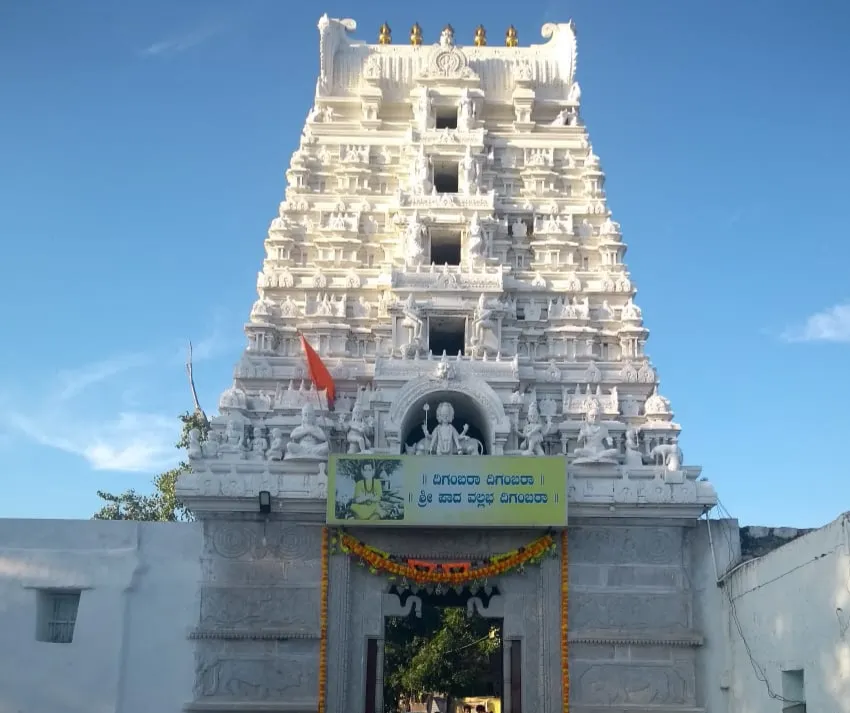Welcome to the mystical world of Kuruvapuram Temple, a revered spiritual destination nestled on India’s banks of the Tungabhadra River. This article will take you on a captivating journey through the historical significance, architectural marvels, spiritual practices, festivals, and the profound influence of Kuruvapuram Temple on its devotees. Brace yourself for an enchanting exploration of this divine abode.
Historical Significance of Kuruvapuram Temple
Delving into the depths of history, the Kuruvapuram Temple holds a significant place. It is believed to have been constructed several centuries ago and has since witnessed the ebb and flow of time. With its roots intertwined with mythology and legends, this temple stands as a testament to the region’s rich cultural heritage.
Legend of Lord Brahma and Kuruvapuram
According to ancient scriptures, Kuruvapuram is associated with a fascinating legend involving Lord Brahma. It believed that Lord Brahma performed a profound penance at this very spot, seeking salvation from the cycle of life and death. As a result, the divine energy of Lord Shiva manifested in the form of a Panchamukha Shivalingam, bestowing the temple with immense spiritual power.
Architectural Marvels of Kuruvapuram Temple
The Kuruvapuram Temple is a marvel of architecture, showcasing intricate carvings and exquisite craftsmanship. The temple complex features various architectural styles, reflecting the artistic influences of different eras. The sanctum sanctorum houses the sacred Panchamukha Shivalingam, captivating devotees with its divine aura.
Sacred Panchamukha Shivalingam
At the heart of the Kuruvapuram Temple lies the Panchamukha Shivalingam, a unique representation of Lord Shiva with five faces. Each face symbolizes different aspects of the divine: creation, preservation, destruction, veiling, and revealing. Devotees believe worshipping this sacred Shivalingam can bring them blessings, peace, and spiritual enlightenment.
Spiritual Practices and Rituals at Kuruvapuram
Kuruvapuram Temple is a haven for spiritual seekers who wish deepen their connection with the divine. The temple offers many spiritual practices and rituals, including meditation, recitation of sacred mantras, and participating in holy processions. These practices help individuals purify their minds, cultivate inner peace, and develop a closer bond with the divine presence.
Festivals and Celebrations at Kuruvapuram
The Kuruvapuram Temple becomes a vibrant hub of festivities and celebrations throughout the year. The annual Maha Shivaratri festival attracts many devotees from far and wide, who gather to express their devotion through various rituals and performances. The air is filled with enchanting hymns, the fragrance of incense, and the joyous atmosphere of unity and devotion.
Importance of Holy Bath in Tungabhadra River
The Tungabhadra River flowing beside the Kuruvapuram Temple holds immense spiritual significance. Devotees believe taking a holy dip in its sacred waters purifies the soul and washes away sins. The tranquillity and serenity of the river create a serene ambience, inviting devotees to connect with the divine energy and experience spiritual rejuvenation.
Healing Powers and Miracles at Kuruvapuram
Kuruvapuram Temple is renowned for its healing powers and miraculous experiences reported by devotees. Many people claim to have been cured of physical and spiritual ailments after visiting this sacred place. The divine energy radiating from the Panchamukha Shivalingam is believed to bring solace, healing, and transformative experiences to those who seek them.
Influence of Kuruvapuram Temple on Devotees
The profound influence of Kuruvapuram Temple on its devotees goes beyond physical healing. It serves as a spiritual refuge, offering solace, guidance, and a sense of belonging. Devotees often find themselves immersed in the divine energy, experiencing a deep connection that transcends the material world. The temple becomes a sanctuary for introspection, self-discovery, and spiritual growth.
Preservation and Conservation Efforts
Recognizing the cultural and historical significance of Kuruvapuram Temple, various organizations and authorities are actively involved in its preservation and conservation. Efforts are made to restore and maintain the architectural grandeur while ensuring the sanctity and integrity of the temple complex. These initiatives aim to protect the temple’s legacy for future generations.
Tourism and Accessibility
Kuruvapuram Temple attracts not only spiritual seekers but also tourists and history enthusiasts. The serene ambience and the captivating architecture make it a popular destination for those seeking a glimpse into the region’s rich heritage. The temple is easy accessible by road and well-connected to nearby towns and cities, allowing visitors to embark on a spiritual and cultural pilgrimage.
Conclusion
In the realm of divinity, Kuruvapuram Temple stands as a beacon of spiritual awakening and cultural heritage. Its rich history, architectural splendour, and sanctity of the Panchamukha Shivalingam continue to captivate the hearts and minds of devotees. Visiting Kuruvapuram Temple is not just a physical journey but a transformative experience that leaves an indelible mark on one’s soul.
FAQ
1. Can anyone visit Kuruvapuram Temple?
Yes, Kuruvapuram Temple is open to all visitors, regardless of their religious background. It welcomes people seeking spiritual solace and cultural enrichment.
2. Is photography allowed inside the temple complex?
Photography is generally permitted in the outer areas of the temple. However, it is advisable to respect the sanctity of the inner sanctum and follow any specific guidelines provided by the temple authorities.
3. Are there any accommodation options near the temple?
Yes, various accommodation options are available near the temple, ranging from budget hotels to comfortable guesthouses. It is advisable to make prior arrangements, especially during peak festival seasons.
4. Are there any restrictions or dress codes for entering the temple?
While there are no strict dress codes, it is recommended to dress modestly as a mark of respect. Removing footwear before entering the temple premises is customary.
5. Are there any nearby attractions to explore along with Kuruvapuram Temple?
Yes, the region surrounding Kuruvapuram Temple offers several other attractions, including historical sites, natural beauty spots, and ancient temples. Exploring these nearby attractions can enhance the overall pilgrimage experience.
